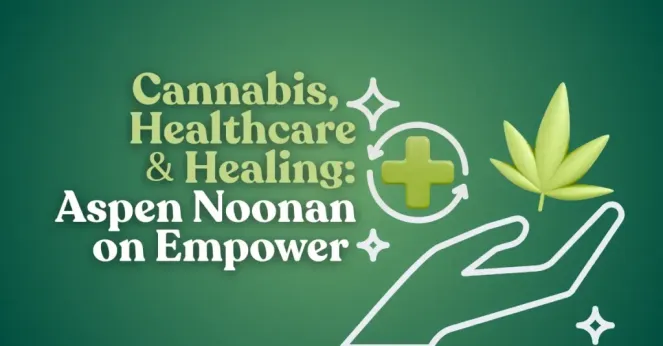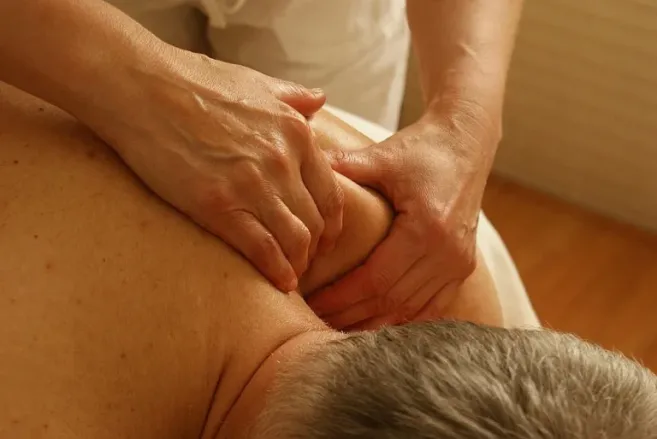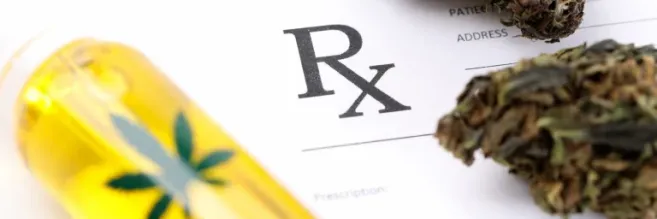Table of Contents
ToggleWhat happens when personal experience, healthcare, and advocacy meet in the same conversation?
On a recent episode of The Empower Podcast, Aspen Noonan, CEO of Elevate Holistics, shared how she went from growing up in a conservative part of Missouri to leading a multi-state telehealth company that helps patients access medical marijuana. Her story isn’t just about cannabis. It’s about breaking stigma, navigating a broken system, and helping people get the care they deserve.
From Missouri to Medical Marijuana Advocate
Aspen didn’t grow up around cannabis. She attended private school in St. Louis and didn’t learn much about marijuana until college. Like many people, her first experiences were personal. But what stood out to her was that cannabis actually helped. It improved her focus. It stabilized her mood. It made her rethink everything she thought she knew about “drugs.”
While attending the University of Missouri, Aspen joined NORML (National Organization for the Reform of Marijuana Laws). That group introduced her to advocates, patients, and lawyers pushing for policy reform. It also set her on a new career path.
Today, she’s the CEO of Elevate Holistics, a telehealth platform that provides online medical marijuana evaluations in over 18 states. She’s also a new mom and says that being a parent adds even more meaning to the work.
Cannabis Was Her Off-Ramp
Aspen was prescribed Adderall at eight years old and stayed on it throughout her teens. It was routine, until it wasn’t. The side effects became too much. Cannabis offered a different option.
In college, she started using marijuana and slowly cut back on Adderall. Eventually, she stopped taking it altogether. “I haven’t taken Adderall in over 10 years,” she said.
What stands out about her story is how common it is. So many people use cannabis not for escape, but to manage symptoms in a way that feels less toxic or intense than pharmaceuticals. Aspen’s experience reflects a much larger conversation about how (and why) people seek alternatives.
The Mess of State-by-State Healthcare
Aspen and the host spent a lot of time discussing how difficult it is for patients to access plant medicine in the U.S. The biggest problem? There’s no consistency.
Each state has its own set of rules. Some allow edibles, but not flower. Others allow oils, but no smoking. In Ohio, dispensaries aren’t even allowed to call it “recreational” cannabis, so they have to say “non-medical.” In Texas, lawmakers are actively trying to reverse their own medical marijuana laws.
Meanwhile, cannabis remains a Schedule I drug at the federal level. That classification puts it in the same category as heroin, even though more than half the country now allows some form of legal access.
This legal patchwork makes it hard for patients to know what’s allowed, how to qualify, or where to get treatment. Enforcement varies. Regulation is confusing. And no two states handle it the same way.
Why Elevate Holistics Exists
That’s where Aspen’s work comes in. Elevate Holistics helps people navigate these laws and get approved for medical cannabis cards. It’s all online, which makes it more accessible for patients in rural areas or those who don’t want to visit a doctor in person.
But telehealth isn’t legal for cannabis evaluations in every state. Some places still block it entirely. In others, laws change so often that providers are constantly having to adjust. Aspen’s team works to stay ahead of these shifts so patients don’t have to.
The goal isn’t complicated: make medical cannabis available, affordable, and safe.
Coming Out of the “Green Closet”
One of the most powerful parts of the conversation was about stigma. Aspen talked about the idea of the “green closet”, which is a term for people who use cannabis but hide it from others.
Even now, when the laws have changed in many places, a lot of people still feel ashamed or afraid to talk openly about it. That fear is a leftover from decades of misinformation.
Aspen encourages people to share their stories. When someone says, “Cannabis helped me with anxiety,” or “I used it to get off painkillers,” it breaks down old stereotypes. It also gives others permission to speak up.
For Aspen, normalizing cannabis use is part of healing. Just like drinking a glass of wine doesn’t make you irresponsible, using cannabis shouldn’t carry shame either.
Beyond Cannabis: Psychedelics and Cognitive Liberty
The conversation also touched on other types of plant medicine, especially psilocybin, the active ingredient in magic mushrooms.
States like Colorado and Oregon are now leading efforts to legalize psychedelics for therapeutic use. Clinical studies are underway, and even the U.S. military is investing in research for veterans with PTSD. Aspen believes this is part of a much bigger shift.
She introduced the idea of cognitive liberty which is the belief that people should have the right to explore their own consciousness, especially in search of healing. Whether through cannabis, psychedelics, or something else, that personal agency is essential.
One Approach Won’t Work for Everyone
Aspen is clear that no medicine, whether plant-based or pharmaceutical, works for everyone. Healing is complex. It’s rarely solved by a single pill, strain, or session.
That’s why she believes in adjunctive therapy, using cannabis or psychedelics alongside other forms of care, like talk therapy, nutrition, or support groups. For some people, traditional medication is life-changing. For others, it’s harmful. The key is letting people choose.
Everyone’s needs are different. Healthcare should reflect that.
The Bigger Picture
This podcast episode was about more than Aspen’s journey. It was about how change happens with one story, one patient, one state at a time.
Medical cannabis is legal in over 35 states. Recreational use is spreading fast. But there are still massive barriers. Laws don’t match. Patients don’t always know their rights. And too many people are left out of the system altogether.
The only way forward is to keep talking. To share what works. To vote for policies that reflect real needs. To call out when lawmakers block progress.
Ready to Take the Next Step?
If cannabis has been on your mind, whether you plan to use it for pain, anxiety, sleep, or simply as an alternative to what hasn’t been working, you don’t need to navigate it alone. At Elevate Holistics, you can speak with a licensed provider from the comfort of home and get your medical marijuana card in just a few easy steps.
Book your appointment today and see if medical cannabis is the right fit for your health and lifestyle.



